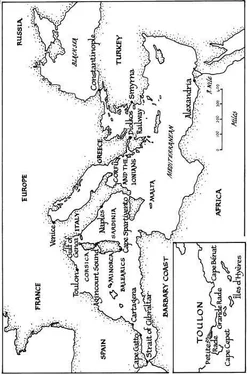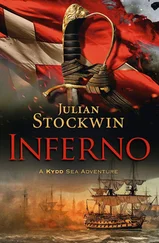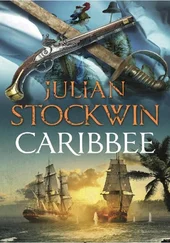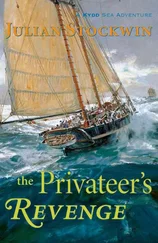Julian Stockwin - Victory
Здесь есть возможность читать онлайн «Julian Stockwin - Victory» весь текст электронной книги совершенно бесплатно (целиком полную версию без сокращений). В некоторых случаях можно слушать аудио, скачать через торрент в формате fb2 и присутствует краткое содержание. Жанр: Старинная литература, на английском языке. Описание произведения, (предисловие) а так же отзывы посетителей доступны на портале библиотеки ЛибКат.
- Название:Victory
- Автор:
- Жанр:
- Год:неизвестен
- ISBN:нет данных
- Рейтинг книги:4 / 5. Голосов: 1
-
Избранное:Добавить в избранное
- Отзывы:
-
Ваша оценка:
- 80
- 1
- 2
- 3
- 4
- 5
Victory: краткое содержание, описание и аннотация
Предлагаем к чтению аннотацию, описание, краткое содержание или предисловие (зависит от того, что написал сам автор книги «Victory»). Если вы не нашли необходимую информацию о книге — напишите в комментариях, мы постараемся отыскать её.
Victory — читать онлайн бесплатно полную книгу (весь текст) целиком
Ниже представлен текст книги, разбитый по страницам. Система сохранения места последней прочитанной страницы, позволяет с удобством читать онлайн бесплатно книгу «Victory», без необходимости каждый раз заново искать на чём Вы остановились. Поставьте закладку, и сможете в любой момент перейти на страницу, на которой закончили чтение.
Интервал:
Закладка:
‘Oh. I was about to mention that he caused a species of rail-way to be made over the isthmus of Corinth, here.’
‘A what?’
‘Rail-way,’ Renzi said, in a pained tone. ‘A form of track upon which a wheeled trolley is mounted and –’
‘Might we leave this for a later time? I have to see Mr Orlov ashore, and—’
‘– which he employed to pull ships across the isthmus to the other side to be re-floated and sent on their way. As you can readily see, it obviates the need to circumnavigate the Peloponnese completely – the Morea if you will – a saving of some hundreds of miles in the voyage.’
Kendall snatched a pair of dividers and wielded them on the chart.
‘He wrote of it in Thesmophoriazusae , I think it was,’ Renzi went on, ‘as they say, “as fast as one from Corinth”, referring to this very rail-way. Which was called the “Diolkos” in antiquity,’ he added helpfully.
‘I make it close t’ three hundred miles saved, if this’n is true,’ Kendall said, in awe, but added suspiciously, ‘an’ I’ve never heard of it afore.’
‘Nicholas?’
‘It’s true. Sea-going triremes of thirty-eight tons were hauled across – Octavian surprising Marc Antony after Actium springs to mind – but the main use was to considerably shorten the trade route in marble and timber.’
‘How long to get them over?’ Kydd snapped.
‘Four miles or so – about three hours with a hundred and eighty slaves at the lines.’
Kydd bellowed for Howlett. ‘Get this barky to sea as soon as you like, sir,’ he told the startled officer.
Renzi hesitated. ‘Um, the reason we’ve not heard of this marvel is possibly the rail-way no longer exists. The emperor Nero conceived of a canal through Corinth and, himself turning the first sod, ruined the approaches beyond repair before he was murdered.’
‘And there’s a mort o’ difference a’tween a forty-ton Greeky old-timer and a frigate,’ Kendall muttered.
Kydd grinned at Renzi’s discomfiture. ‘Where your trireme went I dare to say a ship’s launch can follow. I mean to set a boat or two of size a-swim the other side under sail with carronades as will wait for our tekne and give it a fright.’
Orlov leaped to his feet. ‘I will help! Anything!’
On the deck above there was the squeal of a boatswain’s call and a rushing thump of feet as L’Aurore readied for sea. ‘No, Mr Orlov. It were best you were not seen. I fancy this is work for my first lieutenant.’
‘And I,’ Renzi offered.
‘I can’t allow—’
‘I’d hazard that you’ve considered the impropriety of bringing to and making prize of a vessel under the flag of an ally of ours? Therefore we are in disguise, our challenge is in the lingua franca of these parts – and where is your Italian speaker, sir?’
With the noble ruins of Athens passing just out of sight on the starboard beam, L’Aurore made anchor in the stillness of the little bay. Kydd had the gig away instantly. It was not hard to spot the fold in terrain between the cliffs leading through to deeper clefts – but what remained of the Diolkos?
The boat grounded softly on a gently sloped rise from the modest beach into the interior where dressed stones suggestive of ancient works lay about.
Renzi could give no further information about the rail-way, and explained apologetically that his classics master had not seen fit to include details of its engineering but that ‘rails’ in the original Greek might very well construe in the archaic form to ‘grooves’ or ‘tracks’.
Quick casting about showed only sand-heath, then low scrub over light-brown soil up and over a pass. Pressing up the slope, Kydd saw that it levelled and twisted through a gully leading on the left to a grander ravine. There were no major obstacles that he could see; if there had been any such trackway it was likely to have been along here.
‘There’s no time to lose,’ he pronounced. ‘The launch and cutter. We make our own rails: lay two spars lengthways as we do carry ’em on board, and having no slaves to hand we set fifty men on the lines.’
Nothing was more calculated to lift the spirits of Jack Tar than something novel, out of routine and fit for a yarn in later life. The two boats were fitted with their gear, men told off for crew or haulers, and in no time the little flotilla was pulling lustily for the shore.
Howlett set out ahead to survey the route while Gilbey followed with a party to hack at the scrub. The spars were laid lengthways several feet apart and a trial was made with the launch, the heavier of the two. With twenty-five on each trace and rollers thrown in over the spars the boat flew up the ‘rails’ and Kydd knew all was possible, even without the heavy tackles he had in reserve.
The scrubby bushes were no impediment and, with a hearty sailor’s ‘stamp ’n’ go’, the heavy boats were trundled rapidly up to the crest of the pass. Beyond, stretching out ahead past a series of lesser slopes, was the Gulf of Corinth.
At the sight the men gave a cheer and waved gaily to an astonished goat-herder on the skyline. Down-slope the boats merely needed restraining, not hauling, and well before dark they reached their goal.
The carronades arrived, six men on each sweating at the effort, others with three balls in a haversack, still more with powder. The craft were quickly rigged, and a bare four hours after setting out from L’Aurore there were two war-boats outfitted for cruising.
Kydd allowed a smile. The ancients had been right and that night on the mess-deck there would be grog tankards raised to those fellow mariners of so long ago. ‘Mr Howlett, I will wish you good fortune. You have your orders and Mr Renzi to advise. Are you clear about your mission?’
‘Sir. To make all possible speed to the island of Cephalonia, there to lie off to the nor’ard to await any tekne seen to be making for Corfu and then to—’
‘Yes. You’ll want to set sail now – I won’t detain you.’ There were further cheers and good-spirited horseplay as the boats were readied; sails were hoisted and sheeted in and, with a wave, they set out.
Kydd watched them until they were out of sight. With a twinge of doubt he knew they faced more than a hundred miles along the narrow gulf before Cephalonia was raised and then they had to intercept the unknown tekne among all the other innocent craft and board it – this was asking much, even for the Royal Navy.
He turned on his heel and returned to his ship. They weighed immediately to sail the long way around and later rendezvous with the expedition.
Renzi settled aft, content to let Howlett take charge. His mind roamed over the improbability of what they were doing and where they were. To the right the mainland of Greece and its burden of history – Athens, Thebes and the cradle of the philosophies of logic he held so dear; to the left the Peloponnesus of Sparta and the Delian League.
It was a moment of magic. For all his classical studies he had never visited here and now . . . a pity there were no romantic ruins nearby, marble pillars that had stood since Pericles had rallied Athens and—
‘Cutter, ahoy!’ bellowed Howlett to the boat bravely seething along out to larboard. ‘I’ll thank you to fall in astern and take better station!’
How petty – and how typical of the man to play the admiral when not a soul was there to witness it, Renzi thought. Then he brought to mind commanders like Cornwallis and his ceaseless blockade of Brest. He had insisted on immaculate station-keeping and, far out to sea, majestic battleships formed line and column by signal, tacked about in succession and manoeuvred as though at a fleet review, with only the seagulls to applaud.
Читать дальшеИнтервал:
Закладка:
Похожие книги на «Victory»
Представляем Вашему вниманию похожие книги на «Victory» списком для выбора. Мы отобрали схожую по названию и смыслу литературу в надежде предоставить читателям больше вариантов отыскать новые, интересные, ещё непрочитанные произведения.
Обсуждение, отзывы о книге «Victory» и просто собственные мнения читателей. Оставьте ваши комментарии, напишите, что Вы думаете о произведении, его смысле или главных героях. Укажите что конкретно понравилось, а что нет, и почему Вы так считаете.









